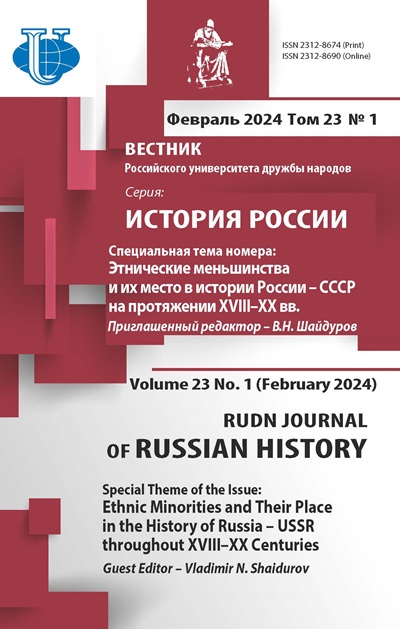ECHO OF THE «MODEST CAUSES THEORY» IN EARLY XX CENTURY (THE CASE OF G.P. SAZONOV’S TRUSTEESHIP)
- Authors: Zverev VV1
-
Affiliations:
- Russian Presidential Academy of National Economy and Public Administration
- Issue: Vol 15, No 1 (2016)
- Pages: 29-38
- Section: ARTICLES
- URL: https://journals.rudn.ru/russian-history/article/view/4215
Cite item
Full text / tables, figures
Abstract
The «Modest causes theory», aimed at the gradual peaceful work for the people and among the people in order to facilitate its position in the difficult conditions of the market economy, lost its popularity among the Russian intelligentsia in the early twentieth century. The socio-economic and socio-political situation in the country had changed, so it became apparent that the growth of the capitalism required not just adaptation of the people to the new conditions, but the creation of a new program of fundamental transformation of the society. Under these conditions the enlightenment ideas did not cause any response from the radical members of the intellectual elite and remained the lotof that part of society, which traditionally stood for the former convictions. Nevertheless, the echoes of the «modest causes theory» could be heard at that time in the works of G.P. Sazonov, one of the famous journalists and economists, who is almost forgotten nowadays. The article analyzes his activities as the trustee of the St. Petersburg Peter and Paul municipal hospital which were aimed to improve the work of this medical institution.
About the authors
V V Zverev
Russian Presidential Academy of National Economy and Public Administration
Email: v.v.zverev@bk.ru
Department of Russian Statehood History
References
















